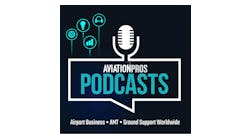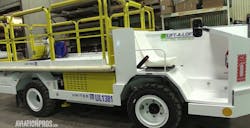The aircraft terrorism threat that surfaced this month has triggered a surge of activity in the private jet charter business.
Most of the new reservations for air charters have been made by business travelers trying to avoid the "hassle factor," said Roger Woolsey, chief executive of Houston-based Million Air Charter. "Productivity is suffering. Business professionals lose valuable hours of their workday standing in long lines at commercial airports."
Airport lines slowed in the wake of terrorist threats in London earlier this month. That was because stricter security procedures were implemented due to reports would-be terrorists planned to carry liquids on board 10 planes and try to make bombs while in the air.
Though security procedures also are used with private and corporate aircraft - including checking the federal government's "no fly" terrorist database - there are no mandatory scans of people or luggage.
While traveling by charter aircraft is more expensive than commercial air travel, proponents said the money saved in time and hotel bills makes it worth it.
In addition to chartered aircraft, there's also been a surge of interest in buying private planes, industry veterans said.
Mike Short of Trinity Jet Management said he believes the threat of terrorism has forced people to make different decisions about how they fly.
"People who were on the fence about chartering or buying their airplanes have made their decisions," said Short, of Dallas, whose company manages airplane maintenance and crews.
That's what Janine Iannarelli, who sells jets for a living, has experienced.
"My business has certainly seen a boom in the number of inquiries," said Iannarelli, who operates Houston-based Par Avion Ltd. "New business we have been developing over the last nine months has taken on new meaning and a new sense of urgency."
The terrorist threat "has had a direct impact on the level of interest in purchasing an aircraft."
The move away from commercial aviation has been significant, according to charter companies. Million Air has seen a 61 percent increase in the number of calls inquiring about charters just since Aug. 10, which has translated into an increase of more than 20 percent in flights, Woolsey said.
"That's pretty substantial," said Woolsey, who operates a network of 30 fixed-base operator locations in the U.S., Canada and the Caribbean.
The requests have been equally divided between domestic and international flights, he said.
Million Air logs more than 75 flights per day coming through its facility, so a 20 percent increase could kick the daily number of flights to more than 90.
Jason Johnson, head of Executive Jet Charter Service in New York City, argues that the cost of flying by charter is not that much more than commercial. And he said business travelers can save a lot of time and work en route.
"If you take a look at a first-class ticket, you spend $7,000 to $8,000" on an overseas flight, Johnson said. "If you have 12 people, that is very close to the price of a private aircraft."
Domestically, a typical charter flight from New York to Los Angeles will run about $60,000, he said.
While many people refused to fly commercially after the 2001 terrorist attacks, that is not the case now, Woolsey said.
"This time it is just the pure hassle factor," he said. "I don't think it is fear."
Conroe-based Wing Aviation reports that it, too, has fielded more inquiries recently from people and businesses moving away from commercial flights.
"We not only have seen an increase in charter activity but also an increase in phone calls about acquiring and managing aircraft," Brian Wing said.
One businessman who initially decided not to charter a flight changed his mind for the return flight and contacted Wing Aviation to come get him and his colleagues, he noted.
"I would dare say call volume has gone up 25 percent and actual charters are up about 10 percent," Wing said. "If we were doing, hypothetically, a dozen charters a week, we may be doing a couple more. We have had a 10 percent increase in nonowner operations, which is charters."
Airlines, including Houston-based Continental Airlines, report a jump of about 25 percent in checked luggage since the latest terrorist incident. Passengers are having to pack everything from toiletries to bottled water in checked bags.
Big percentage of air travel
More than 75 percent of the nation's air traffic is general aviation as opposed to commercial, said Andrea McCauley, spokeswoman for the Transportation Security Administration.
There are no mandatory security regulations for many types of private aircraft unless they are flying into Reagan National Airport near Washington, D.C., she said. Instead, government authorities make recommendations regarding security matters.
"GA managers have been very proactive as far as partnering with the TSA and have devoted substantial money and energy to enhancing security since 9/11," McCauley said.
Among the recommendations from TSA to the general aviation industry are using auxiliary locks for aircraft and taking steps for good identification of cargo on board aircraft, she said.
A general aviation airport can be anything from a landing strip in the middle of a cornfield to a high-tech operation in an urban area, McCauley noted.
At the Million Air Houston facility at Hobby Airport, customers include executives of department store chains and home improvement retailers, Woolsey said. Companies involved in the energy business also are frequent customers.
Companies that own aircraft
Many big companies don't use charters because they own their own aircraft. Houston-based Rowan Cos. has a fleet of five aircraft based at Hobby, through Million Air, that are used strictly for executive travel, travel manager Bobbie White said.
Rowan has discussed the possibility of moving away from using commercial flights for its oil rig crew changes overseas, but the cost is just too prohibitive, White said.
"Right now doing it commercially is best for us," she said.
Woolsey said he expects the increased interest in private jets will continue for some time.
"It's difficult to predict how long this spike will last," the businessman added. "As long as it remains difficult to fly on commercial airlines, I think more people are going to explore air charter options."
Copyright 2005 LexisNexis, a division of Reed Elsevier Inc. All rights reserved.
Terms and Conditions | Privacy Policy
News stories provided by third parties are not edited by "Site Publication" staff. For suggestions and comments, please click the Contact link at the bottom of this page.





